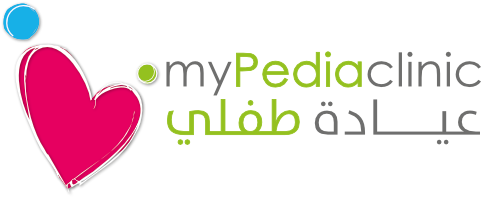Looking for a lactation professional in Dubai, you’ve come to the right place. Meet Mirna Sabbagh, nutritionist , dietitian, and IBCLC at myPediaclinic (Voted best pediatric clinic in Dubai). She has won Timeout Kids Prestigious Award for Prenatal and Post Natal care for 2018.
Find below some information, you Book an appointment by clicking on the following link Book an appointment.
Mirna has appeared on every TV channel in the region to discuss lactation issues and struggles and has discussed the topic in many prestigious regional conferences and she is a mother herself who exclusively breastfed her son. Whatever your issue is, nipple pain, cracked nipples, inadequate milk supply Mirna can help you.
What is a lactation consultant?
A lactation consultant is a certified professional who can help a mother with all breastfeeding difficulty. It is a new field that has been created due to a lack of proper training and support for breastfeeding needs in the medical community. The middle east has extremely low breastfeeding rates in comparison to the rest of the world, this is why lactation consultants are of utmost importance in the medical field to help mothers begin breastfeeding and maintain it. Most mothers stop breastfeeding because they find it painful or are afraid they do not have enough milk supply. Breastfeeding should NOT be painful and a lactation consultant can find the reason behind the painful breastfeeding and fix it. A breastfeeding consultant can also help you assess if your milk supply is enough and help you increase it if it is not.
At myPediaclinic we work as a team, the lactation consultant and pediatrician Dr. Medhat Abu Shaaban work together to make careful analysis of each individual baby’s situation and to exclude any medical reasons that can be causing feeding issues such as lip tie or gastrointestinal problems.
You might also be looking for a lactation consultation in Dubai for any of the below reasons:
- Breast infection (mastitis)
- Nipple pain not caused by incorrect latch
- Re-lactation and increasing milk supply
- Nursing strikes
- Pumping and getting back to work
- Pumping while travelling for baby
- Removing formula supplementation
- Gentle weaning baby completely
We cover all the above cases.
How do you know if you need to see a lactation consultant?
Some breastfeeding concerns may be easily solved by knowledgeable friends and communities such as the mother doubting herself or doubting her milk supply even though the baby is gaining weight and is in good health. However other problems need medical support from a health care professional, preferably an IBCLC (International Board Certified Lactation Consultant) who will be able to asses the baby’s latch, the baby’s weight gain, and the mother’s milk supply. There are times that the IBCLC will have to work with other members of the health care team to make sure the baby’s weight gain/loss is not due to medical reasons or anatomical problems such as tongue tie and lip tie in the baby.
For this reason it is vital to seek help by contacting an IBCLC if you or a friend of yours is going through any of the following cases. The sooner you seek help, the better odds for a successful breastfeeding journey. Our Lactation Consultant (IBCLC) Mirna Sabbagh provides us with 7 reasons you need to contact an IBCLC today.
Reasons to see a lactation consultant (IBCLC) by IBCLC Mirna Sabbagh in Dubai
1. Pain during breastfeeding
Pain during breastfeeding is actually abnormal. It could be caused either by an incorrect latch or by the baby having anatomical problems. Both of which could be assessed by an IBCLC. Tongue tie diagnosis is also best diagnosed and confirmed by a tongue tie expert. Please read more about tongue and lip ties by Dr. Medhat Abu-Shaaban, pediatrician and tongue tie expert at myPediaclinic in Dubai on “Tongue Tie Diagnosis and Treatment”
2. Baby not latching on the breast
A baby could not latch on the breast for several reasons. Some of them have to do with the mother’s nipple shape such as inverted or flat nipples. Other reasons could have to do with the baby’s tongue or lip tie as mentioned above or cleft palate or other problems such as Down Syndrome or others. Either way an IBCLC will be able to figure out what is the problem and then help the baby latch. The IBCLC may resort to several techniques to help the baby latch such as everting the nipple before the baby latches and also by using nipple shields if needed. Do not use a nipple shield before discussing with an IBCLC first as it is difficult to wean off and may not be needed depending on the problem. For other problems such as Down Syndrome or Hypotonia an IBCLC will be able to use different latching techniques to help the baby on the breast.
3. Losing weight
All babies lose up to 7-10% of their birth weight during the first week of birth. However losing beyond this range could signify a problem with either milk supply or baby’s ability to extract milk from the breast. An IBCLC will be able to assess the problem and provide support where needed be it by optimizing latch, or by increasing milk supply as needed before resorting to formula
4. Not regaining birth weight by 14 days
This issue is similar to the problem above, the baby might be latched and gaining weight slowly but not at a pace that is appropriate for age. This is judged by plotting weight/age, height/age, and weight/height as per the WHO chart tables for breastfed babies. If the baby is falling off the percentile and not gaining adequate weight appropriate measures should be taken by trying to increase milk supply if all other medical reasons are excluded.
5. Not gaining 20-30 grams per day after the initial 14 days
Similar to above. Breasts do not have measurements on them and we can not know how much the baby is getting per feed. Weight is one of the main measures of breastmilk intake, for this reason it is important to keep an eye on it so that the baby does not risk dehydration or growth delay.
6. Appropriate diaper output
Diaper output is another measure of adequate breast milk intake. One stool on day 1. Two stools on day 2. Three stools on day 3. Four stools on day 4 and beyond. We should be able to also see similar wet diapers ranging between 4-6 pale urine outputs. If not, check with an IBCLC to make sure there is no problem with milk supply or milk extraction before checking for medical reasons or needing to supplement with formula.
7. Mastitis
Mastitis is common among women with oversupply, women who mix feed bottle and breast, and women who pump. If you wish to pump during the early days make sure to do it at the same time every day as not to confuse the body. If you are giving supplements also make sure to give it at the same day. If you do develop mastitis, or begin to develop mastitis contact an IBCLC immediately so it does not progress. Signs of mastitis would be engorgement, swelling, redness, pain, fever, fatigue.
If you are a mother looking to get prepared about breastfeeding while pregnant. We also offer a very informative pre-natal consult. Which includes the following:
- What are the normal breast changes during pregnancy and what are the red flags?
- We do an assessment of the breasts to exclude any possible issues such as hypoplasia
- We assess your medical history and see if there are any special preacautions that need to be addressed such as: Breastfeeding and PCOS (polycystic ovarian syndrome), breastfeeding and diabetes, breastfeeding and obesity, breastfeeding and anticipated c-section, and more.
- We discuss what to take with you to the hospital, what to expect while at the hospital, how to get breastfeeding onto the right start.
- We will also discuss what to expect with the first few weeks home
- All your concerns and questions. No question is silly
For questions about lactation consults you can email our lactation consultant in Dubai, Mirna Sabbagh on mirna@mypediaclinic.com and for appointments you can call the clinic directly on 04-4305926. To read more about Mirna Sabbagh you can visit her website Nutricycle.





